Must-see exhibits at the V&A Museum
The Victoria and Albert Museum (also called the V&A museum) opened in 1852 and is one of the most popular museums in London. With more than 140 galleries and a permanent collection of over 2 million objects, it is no wonder that the museum is on the must-visit list of almost every tourist to London. The collections at the museum can be broadly categorised into architecture, design, furniture, metalwork, paintings, fashion & jewellery, sculptures, photography, textiles, glass and ceramics. In addition to the permanent collections, the museum also hosts regular exhibitions.
The museum is huge and obviously, you cannot see everything in one visit. You can pick up one of the museum maps at the entrance and plan what galleries you would like to visit. Or you can just wander about and discover each room as you go with the flow.
Listed below are some of my favourites from the V&A museum.
The Cast Collection
My favourite collection at the V&A is the Cast Collection which was opened in 1873. Featuring reproductions of Michelangelo's David, the Trajan's Column, the Nymph of Fontainebleau and Ghiberti's Gates of Paradise, among others, the collection takes us back in time offering a glimpse of the art and architecture from the 19th century.
Plaster cast of Michelangelo's 'David'
What a beautiful copy of one of the most iconic sculptures in the European art history this one is! The plaster cast, made by sculptor and cast-maker Clemente Papi, was presented by the Grand Duke Ferdinand III of Tuscany to Queen Victoria who then presented it to the museum. It was initially housed in the Art Museum and then moved to the Cast Courts when they were opened in 1873.
While there are numerous copies of Michelangelo's David, this life-size copy is one of the finest and the centrepiece of the Cast Court.
Plaster cast of Trajan's Column
The original Trajan's Column is located in Rome and commemorates Roman Emperor Trajan's victory in the Dacian Wars. The plaster cast in the Cast Courts, although displayed in two sections because the gallery is not high enough to accommodate the column in one piece, is still as inspiring and dominates the gallery.
Sacred Silver and Stained Glass Collection
V&A's collection of objects used in worship is impressive. The collection has everything from vessels made of gold & silver, crosses, Torah mantles & crowns, monstrance, reliquaries and many other objects used in worship. If this is of interest to you, do check out the Sacred Silver gallery. Also, a part of this gallery is the Sacred Stained Glass collection. The stained glass panels are not just decorative but a medium through which messages of faith are expressed.
Altarpiece of St George
As you walk in to the Raphael gallery, you will see the beautiful Altarpiece of St George. Illustrating the legend of St George, the large altarpiece is made of three superimposed central panels and on each side ten scenes from the life of the saint are depicted. The altarpiece was painted in the first quarter of the 15th century and is attributed to the 'Master of the Centenar'.
The Great Bed of Ware
I am sure you must have heard of the 'Great Bed of Ware'. The four-posted bed which is over three metres wide has been referenced in a number of plays and stories including Shakespeare's Twelfth Night.
Carved from Oak, the bed features painted Marquetry panels and beautiful patterns from the European Renaissance period. There are male and female figures on the headboard while the panels of inlay show imaginary buildings. The carvings are beautiful.
The bed was used in a number of inns in Ware and visitors often carved out their initials on the bed (some of which are still visible). V&A acquired the bed in 1931 and since then it has gone on to become one of the most popular objects in the museum.
Swan centrepiece by Asprey
The next object on my list is a part of the Rosalinde and Arthur Gilbert Collection which includes beautiful objects made from gold and silver, painted enamels and mosaics. The items from this collection have been displayed at the V&A since 2008.
While there are many remarkable objects of art in the collection, one of the most beautiful and my favourite was the Mute Swan. Exquisitely hand-crafted, this silver piece made by Asprey is certainly one of the highlights of the Gilbert Collection. Life-size, very elegantly made and with great attention to the finer details, the Mute Swan is an excellent example to demonstrate the skill of London goldsmiths in the late 20th century.
Stained glass from Mariawald Abbey
This one is one of the finest pieces from the V&A's collection of stained glass from Mariawald Abbey. It comes from the Mariawald Abbey near Cologne in Germany. The stained glass pieces depicting events from the Old and New Testaments of the Bible were displayed in the covered walkways of the abbey. It is said that the monks walked past these pieces on their way to the church from their living quarters.
I love the incredibly intricate artwork achieved by the artisans in these stained glass panels.
Augsburg Clock
Another item from the Gilbert collection makes it to my list - the Augsburg Table Clock.
Made from wood and tortoiseshell, with silver-gilt and inlaid with mother-of-pearl, ivory, enamel and other semi-precious stones, the cabinet clock is a masterpiece. The clock has small silver statuettes of Lord Buddha, motifs of rhinoceros, mythological creatures and some zodiac symbols depicted on it. It is truly a wonderful piece of art and must have taken the artisans lot of time and effort to create this.
The three Rosenborg Lions
I love lions and these silver-plated copies of the three silver lions that guard the royal throne at the Rosenborg Castle in Denmark immediately won me over. The originals were made in the year 1670 by Ferdinand Kublich for the coronation of Christian V as the King of Denmark. One seated, one crouching and one standing majestically, the three lions symbolised the three territorial boundaries of the country and were said to 'protect' the royal Danish throne.
The reproductions that can be seen at the museum were purchased from Elkington and Company for £100 each in the year 1885 to add to the museums growing collection of reproductions.
You can find these lions in Room no 89 which houses silver artefacts.
Torah Crown
While there are many other crowns with grander and more elaborate designs, the Torah crown featured in the list caught my eye because of its simplicity and its beautiful execution. The Torah is a scroll which contains the 'Pentateuch', the first five books of the Hebrew Bible and is normally decorated with a crown. This particular Torah Crown was made by Gerald Benney a renowned silversmith. He has used the striking red enamel to depict the burning bush that Moses saw in the desert while the 12 gemstones pinned on the silver band are said to depict the 12 tribes of Israel.
So, those are some of my favourites from the V&A Museum. If you have visited the museum, what are your favourite exhibits? Let me know via the comments section.
Powered by GetYourGuide
How to get to the V&A Museum
V&A Museum is easily reached by public transport with South Kensington underground station being the nearest tube station. It is serviced by Circle, District and Piccadilly lines.
The museum is open daily (except December 24th, 25th and 26th) from 10.00 – 17.45 and on Friday's from 10.00 – 22.00. Admission to the museum is free while some seasonal exhibitions may carry a charge.
Victoria and Albert Museum | Cromwell Road, London, SW7 2RL

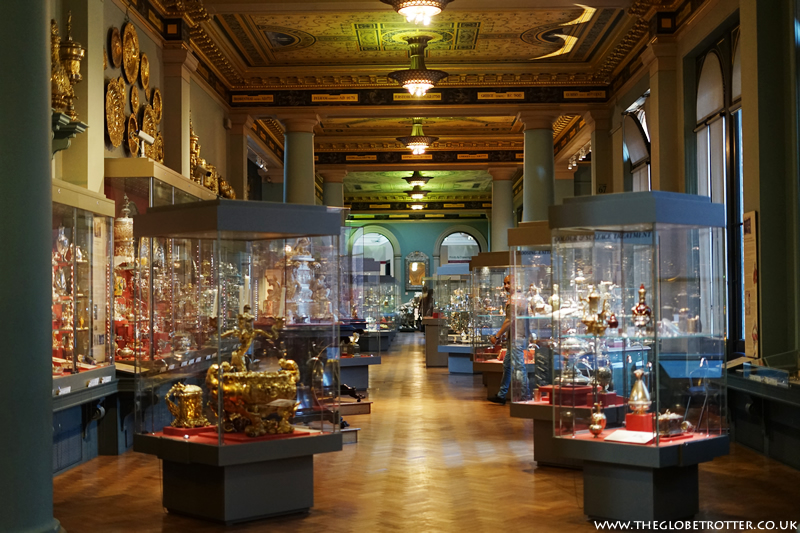
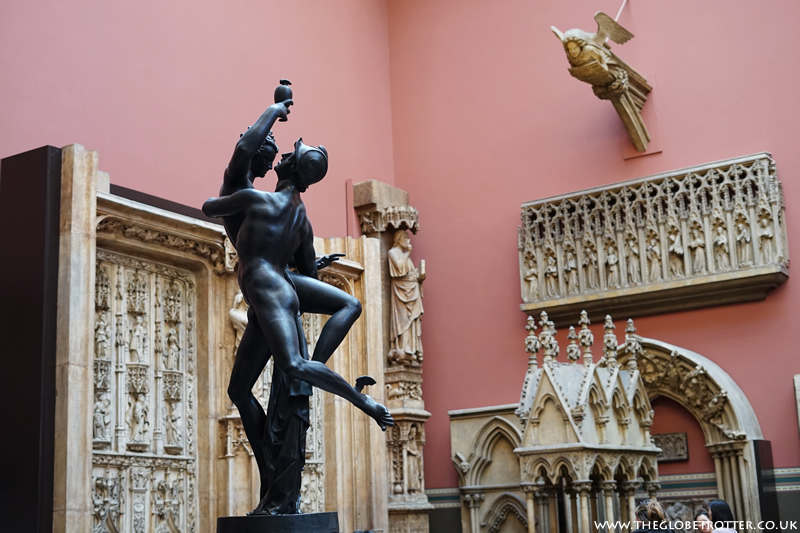




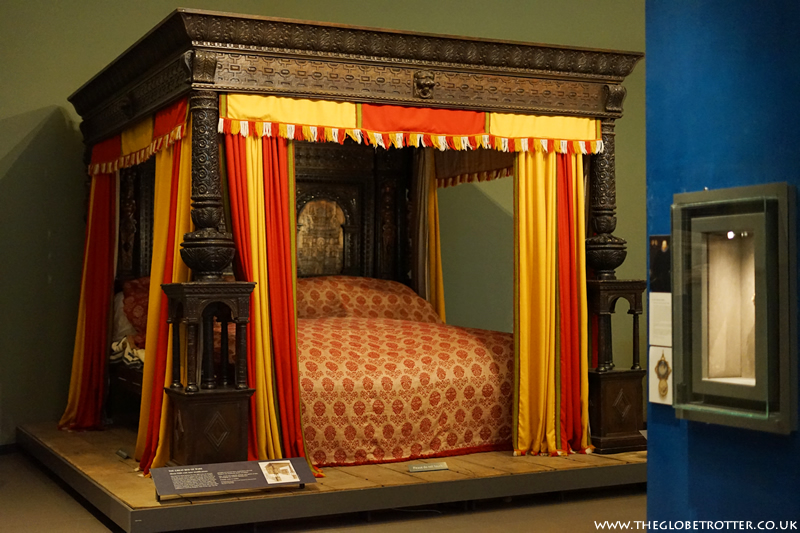


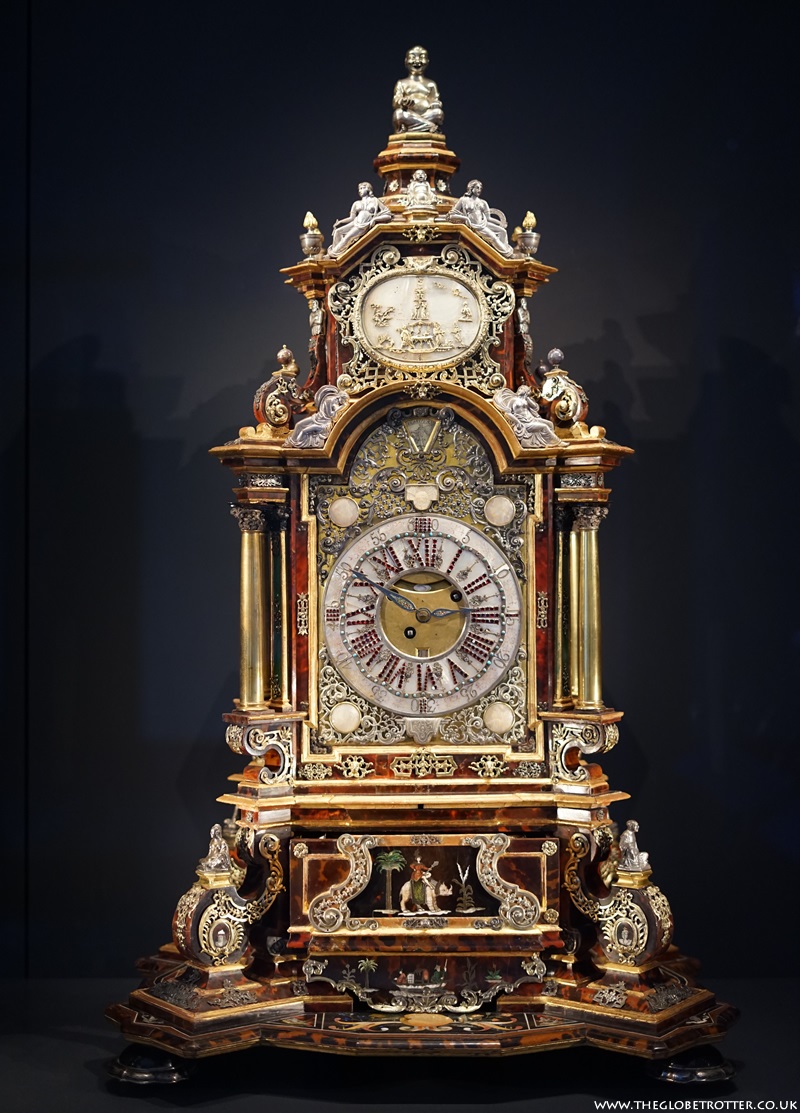
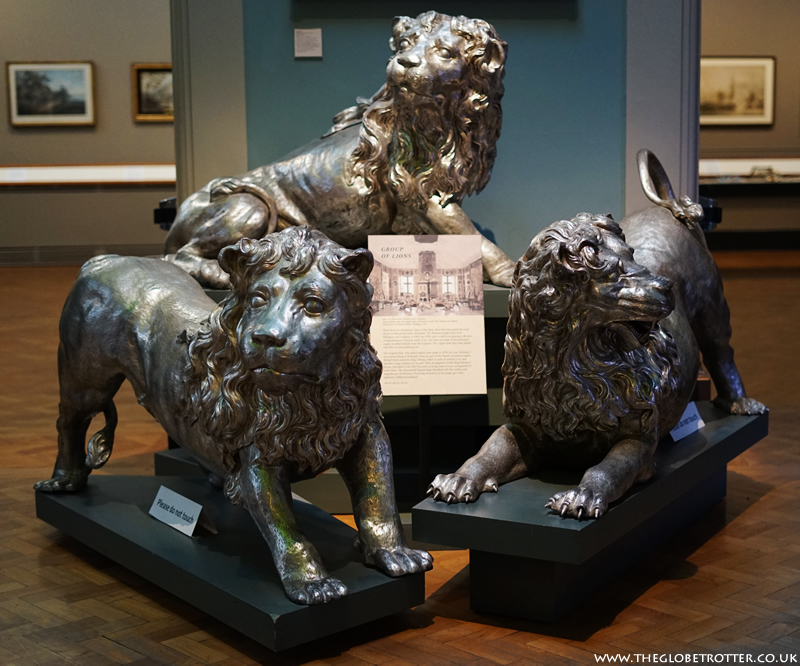
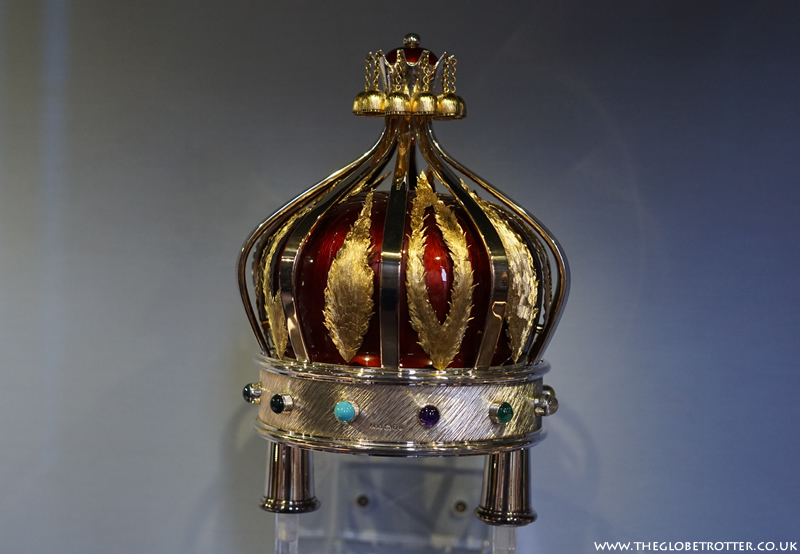

Post a Comment